SUMMARY
This is AI generated summarization, which may have errors. For context, always refer to the full article.
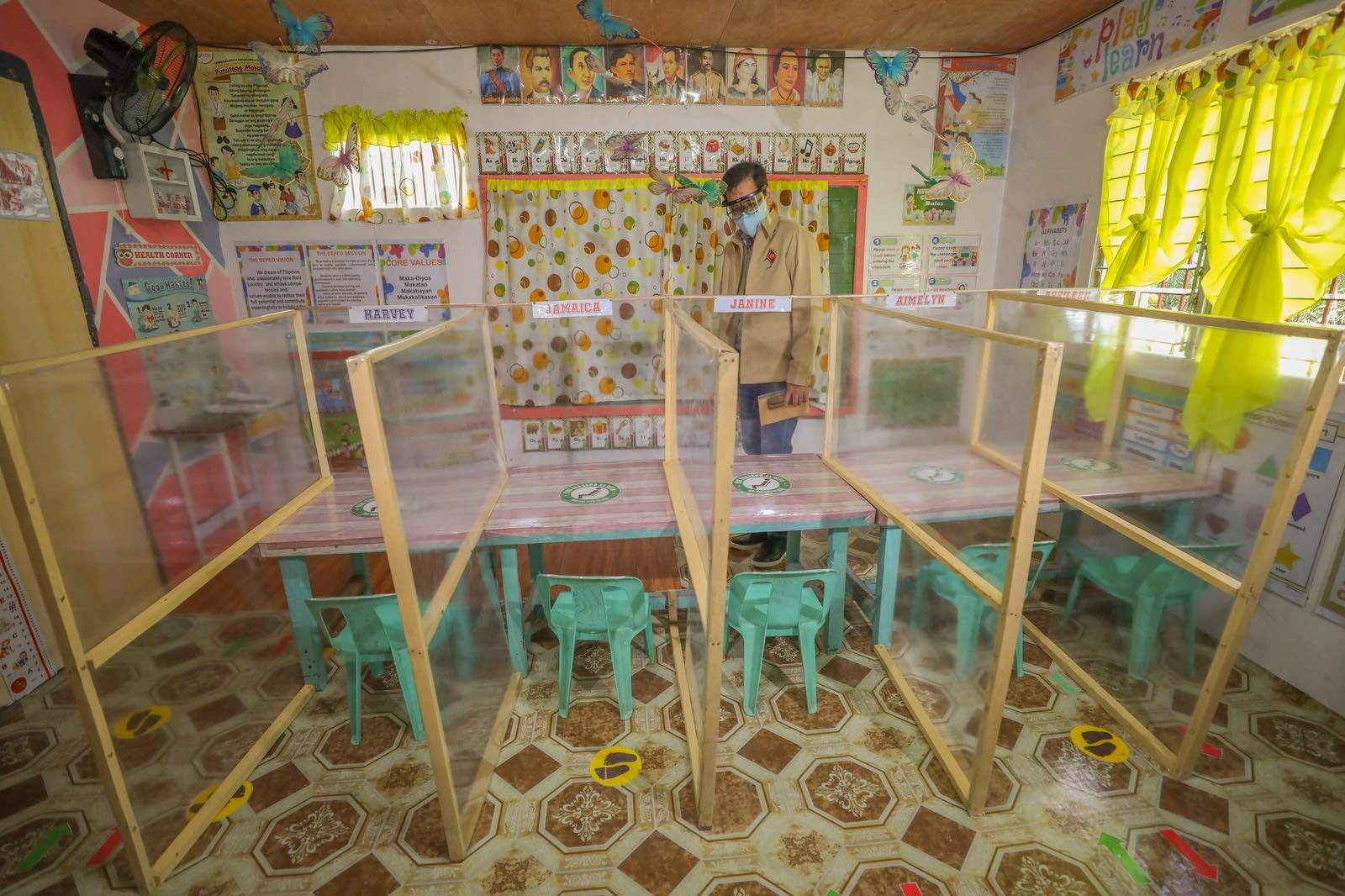
As the government starts a pilot run of limited face-to-face classes for basic education students on November 15, several groups called for more health protection measures to build the confidence of students and teachers of a safe school reopening.
In a joint statement on Wednesday, November 10, the groups listed five demands that should be met by the government to ensure safe reopening of schools.
- Weekly COVID-19 antigen testing to screen all learners, teachers, and staff who will participate in the classroom in-person learning;
- Special vaccination program in areas where schools that will participate in the pilot run of face-to-face classes are located;
- Retrofitting of classrooms to ensure better ventilation, with each having a minimum of two electric fans, and air-conditioned rooms having air filters;
- Mass hiring of school nurses;
- Medical fund for free treatment of those who will get infected with COVID-19.
The statement was signed by the following groups:
- Alliance of Concerned Teachers
- National Union of Students of the Philippines
- Agham
- Coalition for People’s Right to Health
- National Network of Agrarian Reform Advocates-Youth
- Amihan
- Salinlahi
- Gabriela
- Katribu Youth
- Bagong Alyansang Makabayan
- ACT Teachers Partylist
- Kabataan Partylist
- Anakpawis Partylist
On Tuesday November 9, the Department of Education (DepEd) said that students joining the pilot run of limited face-to-face classes in the country will not undergo COVID-19 testing.
Education officials said that COVID-19 testing, especially the process of swabbing for samples, would be traumatic for young students. (READ: No COVID-19 testing for students in face-to-face classes – DepEd)
While the process of swabbing can be painful or uncomfortable for many, the Philippines offers also another process of COVID-19 testing that is easier and faster – the saliva-based COVID-19 testing. It has been approved by the health department for use since January 2021.
For college students, the government body tasked to manage the country’s pandemic response has allowed limited face-to-face classes for all degree programs in areas that are under Alert Level 2, including Metro Manila. Prior to this, limited in-person classes were only allowed for select degree programs.
The groups said that the DepEd and the Commission on Higher Education’s guidelines for school reopening lack “key health protection measures” that can boost the nation’s confidence for in-person classes in the middle of the pandemic.
The government’s pandemic response has been assailed, with critics saying that the school closure in the country reflects misplaced priorities and failed management of the health crisis.
For the second time, millions of Filipino students on September 13 started classes even as campuses remained closed due to the COVID-19 pandemic. – Rappler.com
Add a comment
How does this make you feel?
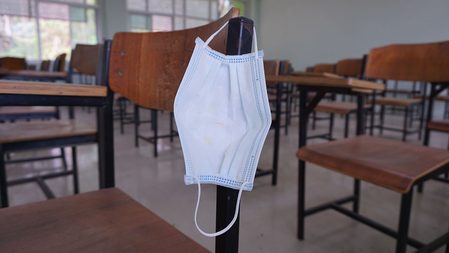
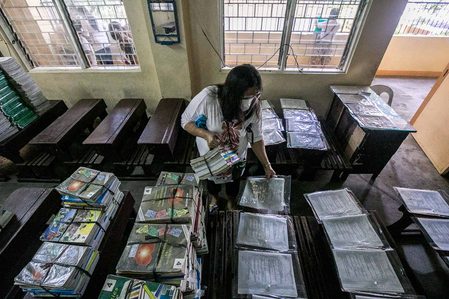

![[ANALYSIS] The multiplier effect of negligence in education](https://www.rappler.com/tachyon/2024/04/The-multiplier-effect-of-negligence-in-education.jpg?resize=257%2C257&crop=277px%2C0px%2C720px%2C720px)
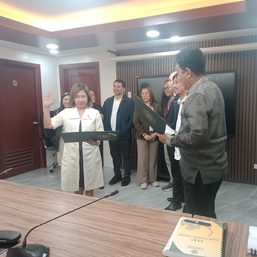
![[OPINION] Moving beyond blaming teachers: The call for regulatory deregulation](https://www.rappler.com/tachyon/2024/02/Moving-Beyond-Blaming-Teachers-The-Call-for-Regulatory-Deregulation.jpg?resize=257%2C257&crop=262px%2C0px%2C720px%2C720px)
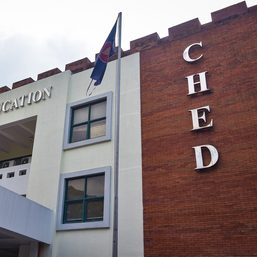


![[Time Trowel] Evolution and the sneakiness of COVID](https://www.rappler.com/tachyon/2024/02/tl-evolution-covid.jpg?resize=257%2C257&crop=455px%2C0px%2C1080px%2C1080px)


![[The Slingshot] Red zipper on the mouth of Sara Duterte](https://www.rappler.com/tachyon/2024/04/TL-red-zipper-sara-duterte-april-12-2024.jpg?resize=257%2C257&crop=335px%2C0px%2C720px%2C720px)
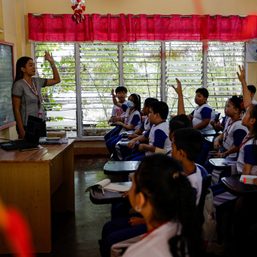
![[OPINION] How about setting up a heat health warning system in PH schools?](https://www.rappler.com/tachyon/2024/04/heat-health-warning-system-in-PH-schools.jpg?resize=257%2C257&crop_strategy=attention)

There are no comments yet. Add your comment to start the conversation.